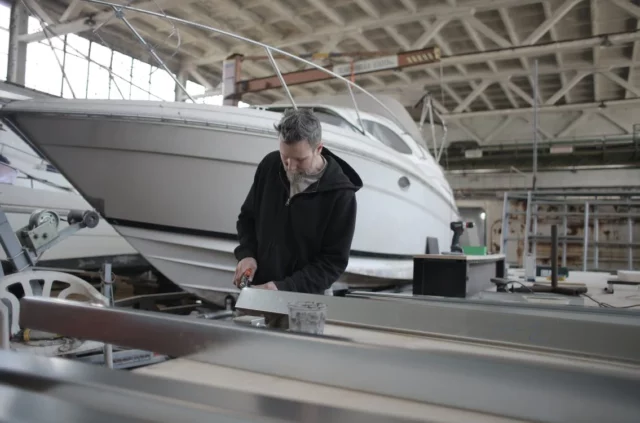In the maritime industry, safety is paramount. Boat makers and shipbuilders play a critical role in crafting vessels that withstand challenges of the open sea. However, safety measures shouldn't be limited to the physical construction of boats alone. In recent times, the global pandemic has emphasized the need for additional safety precautions, including mask fit testing. Let’s explore why mask fit testing is crucial for boat makers.
Understanding Mask Fit Testing:
Mask fit testing determines the effectiveness of a respirator or face mask in preventing the inhalation of airborne contaminants. This involves assessing the seal and fit of the mask on an individual's face to ensure it provides adequate protection. Boat makers face similar challenges to other industries when it comes to airborne hazards, such as fine particles, fumes, and dust. Properly fitted masks can significantly reduce the risk of inhaling these hazards and also mitigate potential health issues.
Importance of Mask Fit Testing for Boat Makers:
Protection against airborne hazards: Boat makers work in environments that can possibly expose them to various airborne hazards including:
- Harmful chemicals
- Paint fumes
- Sawdust
- Fibreglass
- Other fine particulate matter
Mask fit testing ensures respirators provide an effective barrier. Additionally, an respirator should prevent the inhalation of hazardous substances listed above and safeguarding your respiratory health.
Enhanced productivity and comfort: Ill-fitting masks can cause discomfort and hinder a boat maker's ability to work efficiently. A proper mask fit eliminates distractions and allows workers to focus on their tasks, ultimately enhancing productivity. By ensuring a comfortable and secure fit, boat makers can work with ease and confidence, contributing to a more streamlined construction process.
Compliance with regulatory bodies and guidelines that govern mask fit testing:
Health and Safety Executive (HSE):
The Health and Safety Executive is the primary regulatory body responsible for ensuring health and safety at work in the UK. The HSE provides guidelines and information on mask fit testing and respiratory protective equipment (RPE) through their publication "Respiratory Protective Equipment at Work: A Practical Guide" (HSG53). They outline the legal requirements and best practices for mask fit testing in various industries, including boat making.
Control of Substances Hazardous to Health (COSHH):
COSHH is a set of regulations that focus on the control of hazardous substances in the workplace. It requires employers to assess and control the risks posed by hazardous substances, including airborne contaminants. COSHH regulations stipulate that employers should provide suitable RPE, such as masks, and ensure that they are properly tested and fit-tested to protect workers' health.
Personal Protective Equipment Regulations (PPE):
The PPE regulations apply to all types of personal protective equipment, including respiratory protective equipment. These regulations specify the obligations of manufacturers, importers, distributors, and employers to ensure that PPE, including masks, meet essential health and safety requirements. They also emphasize the need for proper fit testing and training for employees.
British Standards Institution (BSI):
BSI is a national standards body in the UK. They develop and publish standards for various products and services, including respiratory protective equipment. BSI's standards, such as BS EN 149:2001+A1:2009 for filtering facepiece respirators, provide specifications for the performance and quality of masks used in different work environments.
Therefore, it is important for boat makers and employers in the UK to familiarize themselves with the specific guidelines and regulations. Mask fit testing procedures must comply with the legal requirements. Regular updates from these regulatory bodies should be monitored to stay informed about any changes or new recommendations related to mask fit testing
The maritime industry, including boat makers and shipbuilders, should prioritize safety at all levels. Mask fit testing is a crucial aspect of ensuring the well-being of the workforce. By conducting regular tests boat makers can then:
- Protect themselves from airborne hazards
- Prevent the spread of infectious diseases
- Comply with regulations
- Enhance productivity
For more information on suppling properly fitted respirators for you and your team, email enquiries@cavity-fit-test.co.uk or phone 0118 214 6192.
